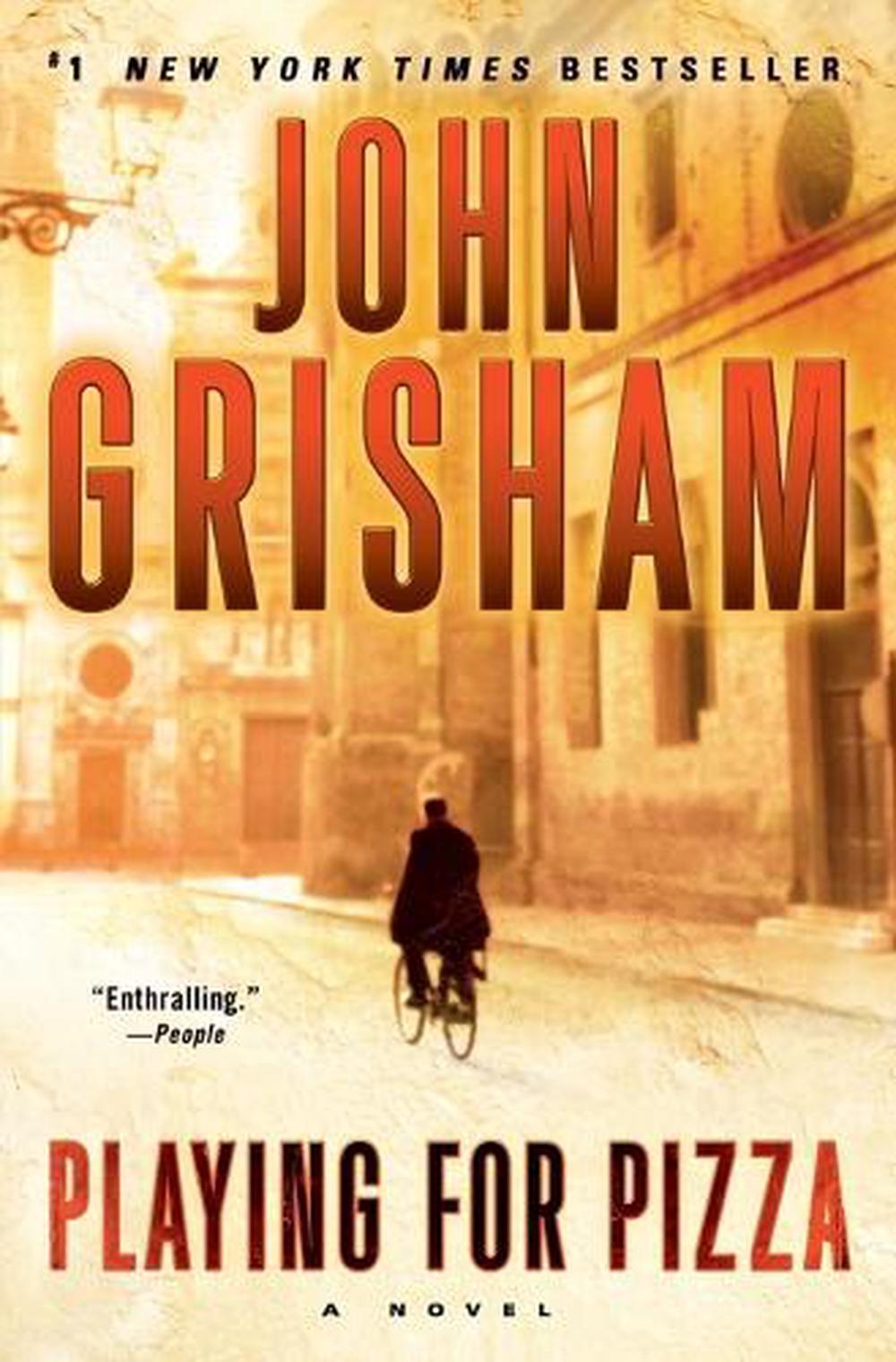

It doesn't help that in his race to the acknowledgments section, Grisham gives Dockery zero depth, reducing him to a haircut with a golden arm. He adjusts to Italy's culture by hanging out in cafes and driving the pre-dawn-streets of Parma, which is the behavior of spies. After spending the night visiting an injured teammate at the hospital, Dockery suddenly dumps his petulant attitude and sees the benefits of teamwork. Lessons and moral clarity are picked up covertly and with craftiness. Problems and quandaries are shot at our protagonist, who ducks and avoids them. Consequently, the novel reads as if gun-toting henchmen are chasing Dockery. But Grisham refuses to tailor his usual kinetic approach, which employs twists and turns to haul narrative ass. Playing for Pizza should be a sprightly, introspective read about the folly of prolonged youth and the different forms redemption can take. I was curious if Grisham had evolved from having attractive lawyers practice acts of heroism that might later inspire tepid blockbusters. Read More: Watching "Everybody Wants Some!!" And "Bad News Bears," Richard Linklater's Baseball MoviesĪ couple years later, I resumed Dockery's Italian exile for my sports book column at the now defunct BiblioBuffet. In that respect, Playing for Pizza was an unqualified success. I read and immediately forgot 70 pages or so before fatigue set in all I can tell you about them is that they sufficiently softened my brain so that I could face another day of being pseudo-employed.


 0 kommentar(er)
0 kommentar(er)
